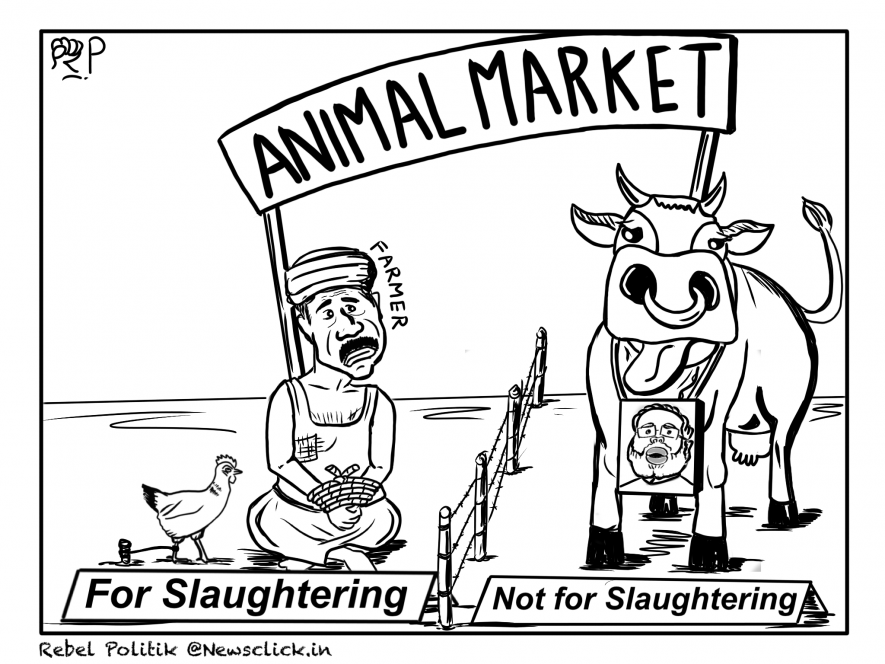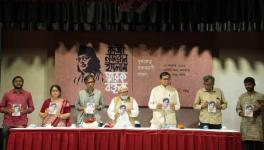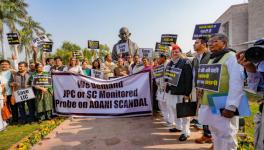Cattle Slaughter Ban will Deepen the Farmers’ Distress

Image Courtesy - Rebel Politik
Modi government on 23rd May brought out Gazette No. 396, titled ‘Prevention of Cruelty to Animal (Regulation of Livestock Markets) Rules, 2017’. The Ministry of Environment, Forest and Climate Change through the Gazette, bans cattle slaughter, restricts cattle trade and selling cattle for sale at the animal market. It allows only farmland owners to trade at animal markets. Cattle include bulls, bullocks, cows, buffaloes, steers, heifers and calves, as well as the camel. There would now be a District Animal Market Monitoring Committee, headed by a Magistrate for regulation of the animal markets in districts. The traders would now be required to go through paperwork for their identity, and to proof they own land. Identities, farmland ownership proof along with an undertaking to the animal market committee that the animals are being brought for agriculture and not slaughter, would now be required.
This undemocratic step by the government is an attack on the rights of the states who would now be required to enforce this step. It undermines the federal structure of our country. It even infringes on the choice of food consumption of the people. This sort of a ban is anti-farmer and also a huge blow to the meat industry.
Kerala government has responded strongly against this step. They say that prohibiting the slaughter of cattle and imposing restrictions on cattle trade is part of the effort to destroy the secular fabric of our country. “Diversity is the essence of our democracy. The actions of our Central Government is in contradiction to it. The Sangh Parivar has orchestrated riots in several parts of the country in the name of cow slaughter. However, ox and buffalo are also included in this prohibition. Millions of people across the country slaughter these animals for food consumption. Meat is not consumed by people of any particular faith alone. People of all faiths have been consuming meat since time immemorial. By prohibiting slaughter, the Government has meddled with the people’s right to consume whatever food they prefer to. We need to take note of the fact that meat is the main source of protein for poor and ordinary people in this country. It is precisely why this is an attack on the poor people of this country. Across the country we should rise in rage against such crude measures. If cattle consumption is prohibited today, it may very well be fish tomorrow.”
The statement by the Kerala government also talks about the job losses that will follow. “Prohibition of cattle slaughter will do away with the jobs of hundreds of thousands of Indians. Once the prohibition comes into effect, raw material for the leather industry will not be available anymore. More than 2.5 million people work in India’s leather industry. Most of them are Dalits. Hence, this prohibition will severely affect our disadvantaged sections.”
CPI(M) was the only political party which reacted to the gazette. Polit Bureau of the Communist Party of India (Marxist) has issued a statement on this. The statement talks about the loss of livelihood of people who are engaged in leather and the meat export industry. “It will destroy the livelihood of crores of farmers involved in animal husbandry, eliminate traditional cattle fairs, put an unfair burden on farmers to care for useless cattle. This further burdens the farmers who are increasingly resorting to distress suicides due to escalating input costs”
The statement also talks about the unconstitutional nature of the Gazette, and calls it an encroachment on the rights of the states under whose jurisdiction such issues fall.
The tenure of the Modi government has already been one adorned with a huge downfall in employment, this step further attacks lives and livelihood of the people of this country.
Get the latest reports & analysis with people's perspective on Protests, movements & deep analytical videos, discussions of the current affairs in your Telegram app. Subscribe to NewsClick's Telegram channel & get Real-Time updates on stories, as they get published on our website.
























